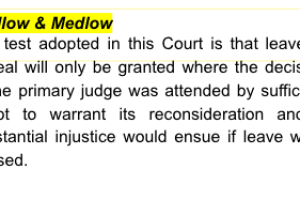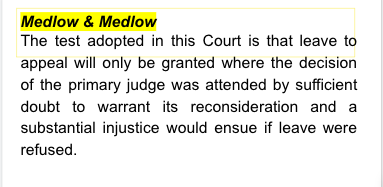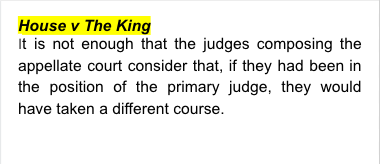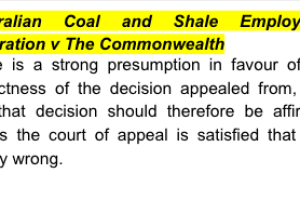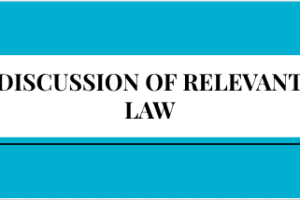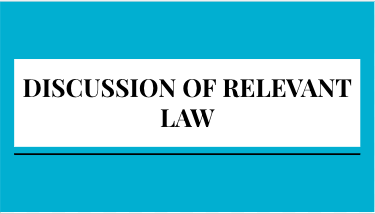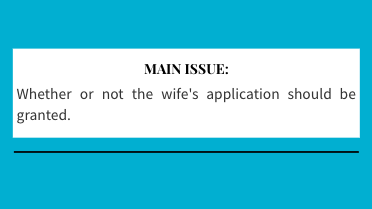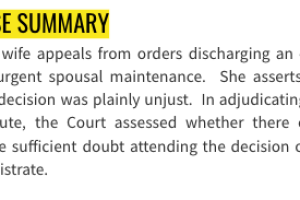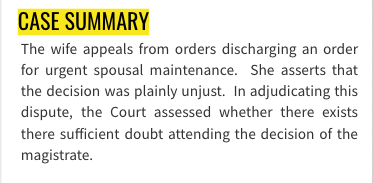- · 4849 friends
Wife Seeks Urgent Spousal Maintenance

Holman & Bates [2022] FedCFamC1A 141 (8 September 2022)

The wife appeals from orders discharging an order for urgent spousal maintenance. She asserts that the decision was plainly unjust. In adjudicating this dispute, the Court assessed whether there exists there sufficient doubt attending the decision of the magistrate.

Facts:
The parties commenced a relationship in 2013, married in 2015 and separated in December 2018, thereby concluding a relationship of something less than six years duration. There were no children born into the relationship, although the wife has a now 17-year-old daughter from a previous relationship who lives with her, and the husband lives with his new partner and her child. As found by the primary judge, at the commencement of their relationship the parties were in “a far superior financial position than exists now”. Particularly the wife held significant equity (about $400,000) in a property she owned at Suburb A.
She also partly owned (and still does) a business where she worked and received a weekly wage. During the relationship, the husband was employed as a tradesperson. It appears the parties’ financial circumstances deteriorated during the relationship due to a decline in the property market, an increase in joint debts and mortgage drawdowns, and the Covid-19 pandemic. After separation, the wife continued to work in the business. In 2019, the husband established his own business, which he continues to operate.
In November 2021, the wife was diagnosed with a terminal illness. She has been undergoing palliative care which impacts on her ability to work. In January 2022, she filed an Initiating Application for property settlement which sought, inter alia, an urgent spousal maintenance order and interim orders for ongoing spousal maintenance. On 27 January 2022, the primary magistrate made a raft of interim orders which included an order for urgent spousal maintenance of $800 per week to the wife pending the interim hearing of the matter.
On 11 March 2022 his Honour, for ex tempore reasons then delivered, made two orders, namely discharging the earlier order for urgent spousal maintenance, and transferring the proceedings to the Family Court of Western Australia. These are the orders which the wife appeals, although no ground nor argument addressed the transfer order.

Issue:
Whether or not the wife's application should be granted.

Applicable law:
Australian Coal and Shale Employees’ Federation v The Commonwealth (1953) 94 CLR 621; [1953] HCA 25 - provides that there is a strong presumption in favour of the correctness of the decision appealed from, and that that decision should therefore be affirmed unless the court of appeal is satisfied that it is clearly wrong.



Analysis:
Although the primary magistrate did not make a stand-alone order dismissing the wife’s interim application for periodic spousal maintenance, when the ex tempore reasons are read as a whole, it is evident his Honour intended to determine the wife’s application for interim spousal maintenance in his concluding remarks. That determination and the order which followed effectively disposed of the wife’s interim application. At the commencement of his reasons, the primary magistrate said: The issue for determination is whether the applicant wife – and I will use the terms “wife” and “husband” in these reasons. The issue for determination is whether the applicant has demonstrated a need for spousal maintenance and, if so, whether the respondent has the capacity to meet the spousal maintenance order.
There can hence be no doubt that his Honour correctly understood the task before him, and at least initially conformed to the steps he had identified. The primary magistrate was not persuaded that the husband had the capacity to pay spousal maintenance but nonetheless went on to say that s 75(2) considerations would persuade him not to have made an order for spousal maintenance in any event. So construed, there was no conflation of ss 72, 74 and 75(2)(o) of the Act. Central to the wife’s argument was an exhibit created by her that purported to demonstrate discounts that ought to be applied to expenses claimed by the husband in his financial statement. However, the husband did not have an opportunity to dispute that document, except by way of his counsel’s submissions.
Conclusion:
The wife’s application for leave to appeal be dismissed. The Notice of Appeal filed 8 April 2022 (as amended on 4 August 2022) be dismissed. The Notice of Contention filed 17 May 2022 be dismissed. Within 28 days of the finalisation of proceedings between the parties in File No. PTW 5930 of 2021, the wife pay the husband’s costs in the sum of $5,000.


